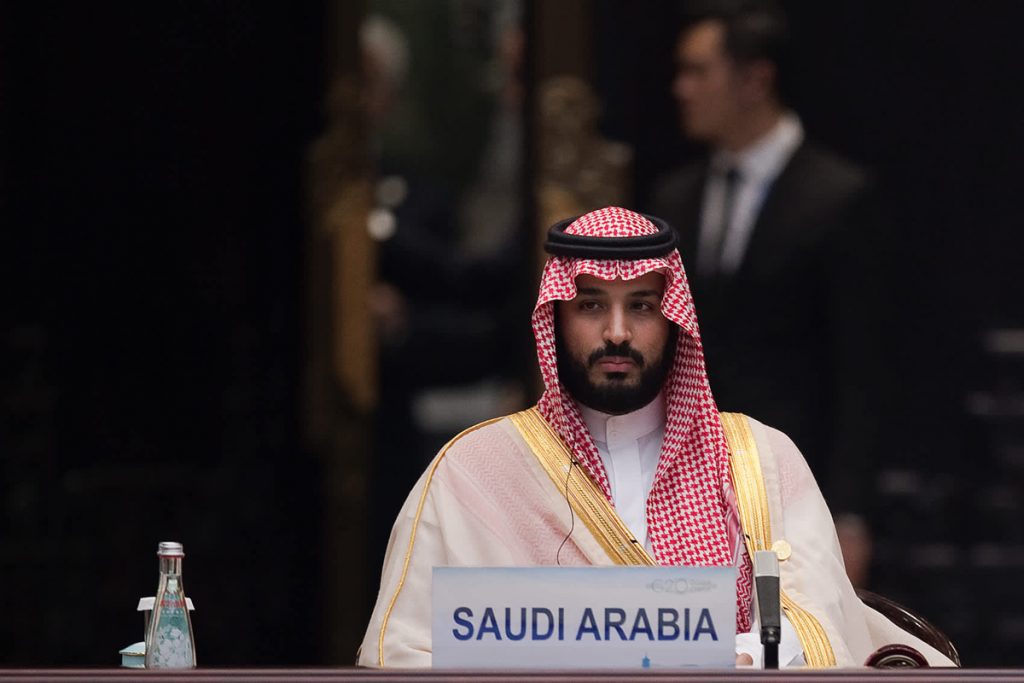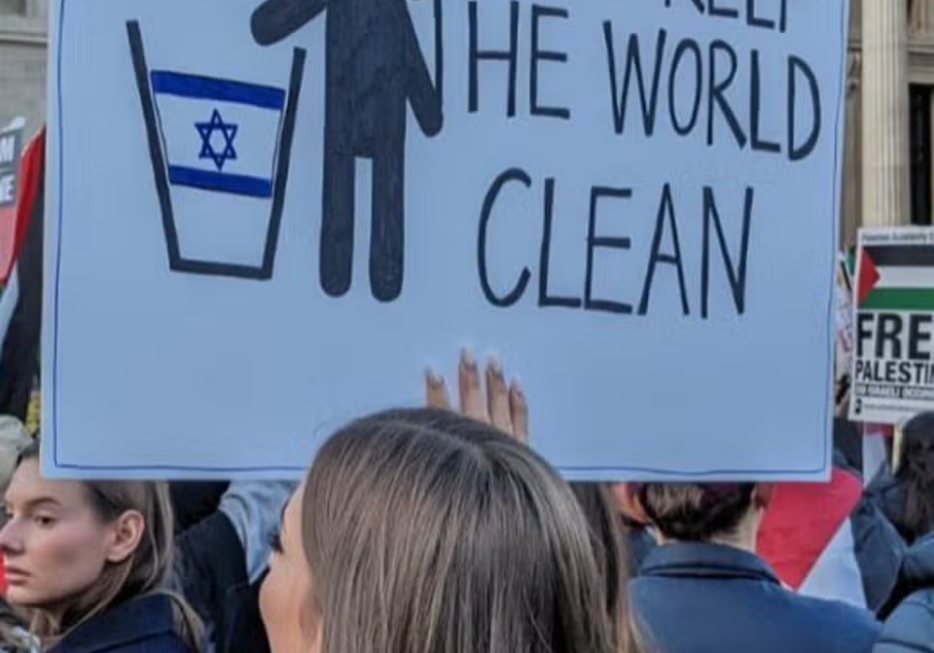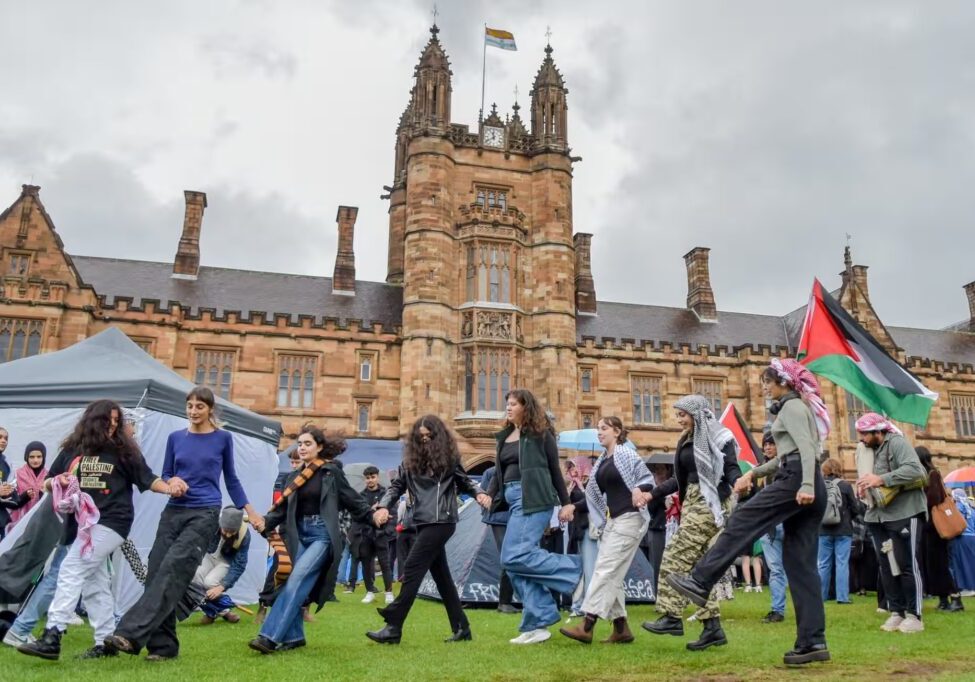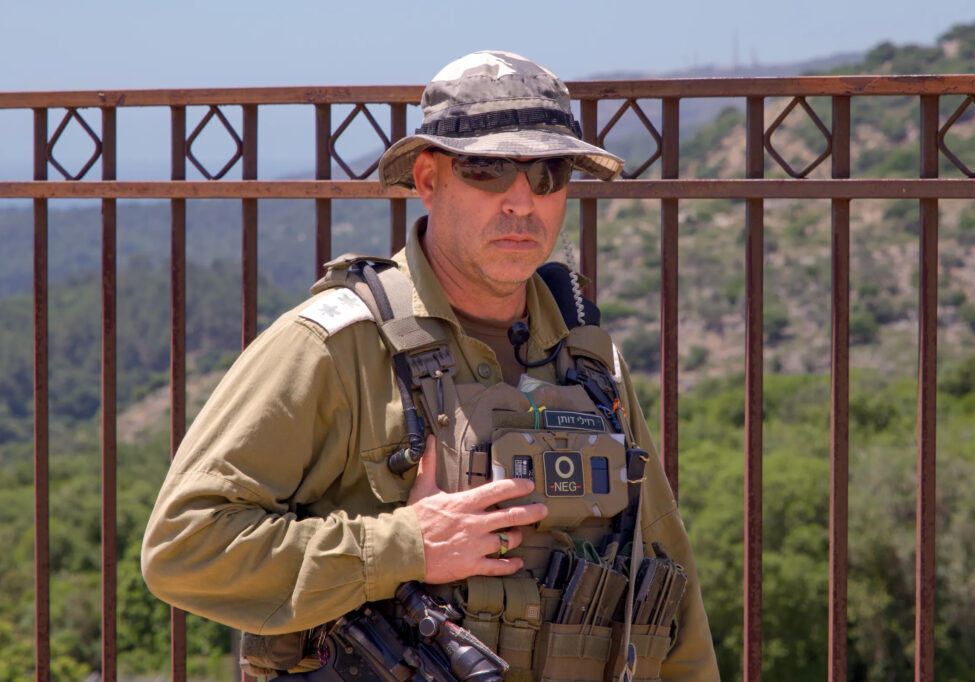Australia/Israel Review
The Kingdom and the Power
Oct 31, 2018 | Elliott Abrams

While the details of dissident Saudi journalist Jamal Khashoggi’s death have not fully emerged, we know the essentials. He died at the hands of Saudi agents in the Saudi consulate in Istanbul, and the decision to kidnap or kill him must have been taken at the top of the Saudi political structure. Whether Crown Prince Mohammed bin Salman (MbS) asked “will no one rid me of this meddlesome journalist” or specified the methods to be used, he is responsible for Khashoggi’s death.
The Saudi decision to name several senior intelligence officials as sacrificial lambs will fool no one, and the official description – that Khashoggi died in a brawl with the 15 thugs surrounding him – beggars belief. On October 19 alone, I (and no doubt thousands of others) received no less than five emails in English from the Saudi embassy explaining the new official line on Khashoggi, which is that “the discussions that took place between him and the persons with whom he met him during his visit to the Kingdom’s Consulate in Istanbul led to quarrels and an altercation, which tragically resulted in his death.”
The official way forward, in addition to prosecuting some intelligence officials and agents, was naming a committee in response to the “urgent need to restructure the General Intelligence Presidency, and overhaul its rules and regulations, as well as, to determine its authorities and assess its procedures and powers within its administrative and ordered organisational sequence to ensure the proper functioning of its work and the determination of responsibilities.” Its chairman: Mohammed bin Salman.
In a cold assessment of this entire incident what leaps forward first is its dangerous stupidity. Khashoggi was a legal permanent resident of the United States, a Washington figure with a huge network of contacts, and a Washington Post columnist. Any harm to him – including “merely” his kidnapping and disappearance into prison or the holding of a show trial – would inevitably become a cause célèbre and damage relations with the United States. It would also inevitably damage Mohammed bin Salman’s own reputation.
So the decision to act against Khashoggi was a revelation of ignorance about the United States, impulsiveness, brutality, or all three. In the shadow of the Khashoggi killing we can now see the forcible detention of Lebanon’s Prime Minister, Sa’ad Hariri, last year as a prelude. It too revealed a thuggish approach and a remarkable lack of understanding of how such events would be viewed in the outside world. It is perhaps not coincidental that MbS, rare among Saudi princes, has spent his entire life in the kingdom and never lived or attended school in the West.
But even after the Hariri debacle, it seems that at the top of the Saudi pyramid there was no one with sufficient knowledge to advise against the assault on Khashoggi, sufficient power to stop it if MbS wanted it, or sufficient courage to disagree with him. So the decision was made and Khashoggi is dead. Now what?
The financiers and businessmen who cancelled their trips to Riyadh were acting in part out of hypocrisy: They would all happily get on a plane to Beijing tomorrow. But their professional business judgment about investing in Saudi Arabia today is another matter, and they appear to share the conclusion of many diplomats and Western governments: What happened to Khashoggi is shocking not only in its brutality but because it reveals important facts about the Saudi Government.
MbS had told an attractive story: that under his leadership the Saudi regime was fast on the road to becoming modern and fully rationalised. Many of the steps he took fit very well in that official Saudi line. He has fully understood for example that they must become less dependent on oil, that their economy cannot prosper without a role for women, that the Wahhabi clergy are a menace to Saudi development, that royal family members must stop stealing the kingdom’s patrimony, and that Iran and not Israel is their enemy. All that was true a month ago and remains true. He is in many important ways a moderniser.
But the image that MbS so carefully built has been smashed. Everyone has been reminded there is no modernising of the Saudi Government, just the sometimes praiseworthy and sometimes disgraceful efforts of one 33-year-old man. Moreover, that man has decided that criticism is tantamount to treason. He has decided that to force the pace of change in the kingdom as he believes he must, all opposition must be crushed – whether it comes from within the royal family or elements of broader Saudi society. No doubt he sees himself as an enlightened despot who must seize all the reins of power or see the brighter future slip away.
This cannot work, for us or for Saudi Arabia. That conclusion is not based only on sentiment or on moral revulsion at what was done to Khashoggi, whom I knew, but on a realist view of Riyadh. It would not be fair to say that the current Saudi arrangements inevitably led to the gruesome scene in the Saudi consulate in Istanbul, but that denouement was more a logical by-product than an accident. The non-lethal versions were the detention of Hariri and more recently MbS’s bizarre assault on Canada when that nation’s Foreign Minister published one tweet criticising Saudi human rights practices. MbS pushed the Canadian ambassador out, stopped flights between the two countries, pulled Saudi investments, and ordered all the thousands of Saudi students in Canada to leave immediately. Both times his reactions were impulsive and excessive, but nobody died – until now.
No single 33-year-old raised entirely inside the kingdom can possibly possess the knowledge of the world his government needs, any more than such a person can combine in himself all the elements needed for sound decisions – including the ability to discern the occasions when morality itself must determine a government’s decisions. But MbS has brutally made it clear that contrary opinions are unwanted and indeed will be punished.
Contrast the governance situation in the United Arab Emirates (UAE). The UAE is no more democratic than the kingdom and its human rights record leaves plenty to be desired. But Abu Dhabi is ruled by a group of full brothers in what amounts to a collective leadership, not governed by one young man. Those brothers are able to confer and debate, and one can say to another “that’s the dumbest damn idea I’ve ever heard” perhaps even as impolitely as that. And because the UAE is a federation, there are several ruling families whose interests and opinions must be taken into account before important decisions are made.
This leads us back to “now what?” An instant decision to cut off all arms sales to the kingdom, being pushed now by many Democrats in the US Congress, would not be sensible. The main beneficiaries of weakening US-Saudi defence ties would be the regime in Iran, which is the enemy of both Saudi Arabia and the United States, and those who would happily sell whatever arms the US does not – China and Russia, for example. Similarly, weakening intelligence ties will hurt not only the Saudis but the United States and its allies in dealing with terrorism. Steps that harm the Saudi economy are equally senseless as reactions to the killing of Jamal Khashoggi.
Instead, the United States should be demanding the kinds of changes that will prevent any future incident like the Khashoggi killing. Such changes would themselves be a punishment for MbS because they would mean his brief period of absolute power is over. Saudi Arabia is and will remain for some time an “absolute monarchy” but that does not mean that all power must be concentrated in one individual with zero checks and balances.
Over the last 65 years (since the death of the founder of modern Saudi Arabia, Ibn Saud, in 1953) that was not the Saudi system. The experiment with one-man rule by the crown prince has failed; along with Jamal Khashoggi it died in the Saudi consulate in Istanbul.
MbS is today Crown Prince, Deputy Prime Minister (the king always has the additional title of prime minister), Defence Minister, head of the Council for Economic and Development Affairs, head of the Council on Security and Political Affairs, and more. That arrangement is unprecedented for Saudi Arabia and is alien to every other Arab monarchy.
Patterns vary: In Jordan and Morocco commoners serve as prime minister and the king fires them whenever he sees the need; in Kuwait, Qatar, and Bahrain, other members of the royal family but not the emirs and crown princes serve as prime minister. In Saudi Arabia the concentration of all power in the hands of one young man has very quietly been debated, but now the debate should be over. Whatever MbS loses in his ability to force through beneficial changes must be given up now, because unrestrained, unlimited power has too often been used badly.
The replacement of MbS as crown prince is a separate matter of royal politics. If the king has lost confidence in MbS, which I doubt, he will choose another son for that post now. Or possibly there is enough rebelliousness in the wider House of Saud to demand that the king take that step, or even to push the king himself aside on grounds of ill health. It has happened before: King Saud was forced out in 1964 in a power struggle with his brothers. The United States should not engage in the royal succession sweepstakes but should state that its interests require a Saudi government with which it can work.
This is not a call for a coup but for a combination of American pressure and reasoning with the king – whose views will be crucial – and with the crown prince himself. The king chose him above three older sons and wants him to succeed to the throne and keep it for decades. The US and its allies must tell him that that won’t happen unless Saudi Arabia replaces whims and ukases with something that looks like a government (The King may have reached that conclusion himself).
Nor will the kingdom attract the investment that it desperately requires unless the rule of law replaces the Crown Prince’s fiat. We must tell both of them that even in the cold world of business and international politics, the vicious murder of a journalist can change the image of a nation and a prince overnight. The US should clearly express its moral outrage. And it should then harness it, not to abandon Saudi Arabia, but to insist that Saudi Arabia move further away from gruesome violence, and start to create a system of governance and law that can truly modernise the country and sustain the alliance with it that the US has had since 1945.
Elliott Abrams is a senior fellow for Middle Eastern studies at the Council on Foreign Relations and previously served as Special Assistant to the President and Senior Director on the National Security Council for Near East and North African Affairs in the Bush Administration. © Weekly Standard (www.weeklystandard.com), reprinted by permission, all rights reserved.
Tags: Saudi Arabia, Turkey






